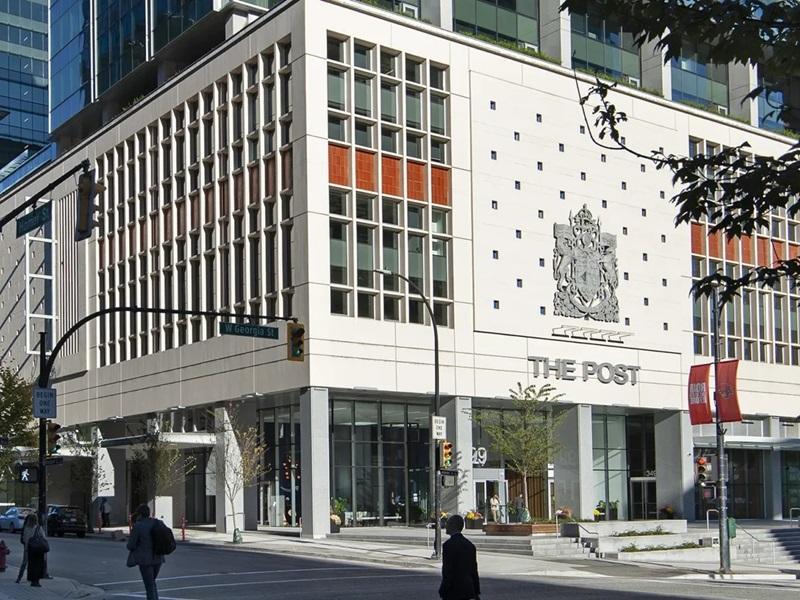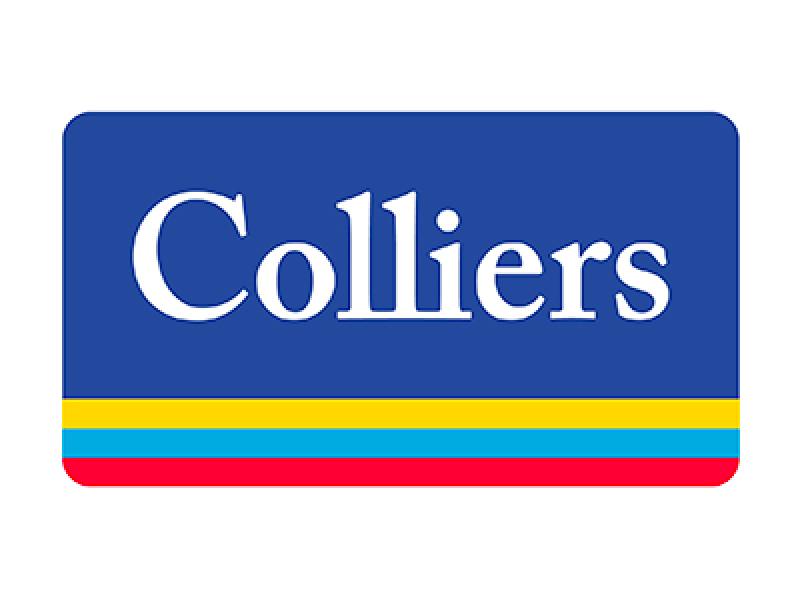
Dream Impact Trust’s developments continue to make good progress, but the trust is suspending its monthly distribution to retain an additional $11 million annually amid concerns about liquidity, portfolio manager Michael Cooper said.
This money, along with proceeds from properties the Toronto-based trust (MPCT-UN-T) is looking to sell, will be used to grow its income property portfolio, reduce risk for the business, increase free cash flow over the long term and allow it to better support the interest on its land loans.
Dream Impact, which is 35 per cent owned by Dream Unlimited, made these announcements and provided further information during a Feb. 12 conference call to discuss its financial and operational results for the three and 12 months ended Dec. 31, 2023.
“With the liquidity from the various asset sales, the reduction in land loans and the decline in interest payments, in addition to the increase in completed income properties, the business will be almost all income properties — and many of the income properties will be apartments,” Cooper said.
This progress will enable Dream Impact to revisit its distribution policy, according to Cooper.
Dream Impact’s real estate portfolio is centred around three verticals: environmental sustainability and resilience; attainable and affordable housing; and inclusive communities.
Share price has dropped
Dream Impact shares are trading on the Toronto Stock Exchange at a very large discount to net asset value. They closed at $4.74 on Feb. 13, down from $6.32 a day earlier before the results were announced, and down significantly from the 52-week high price of $16.28.
“We're very much aware of the discount to market and it's been very disappointing,” Cooper said.
“This company has fairly high leverage and has a lot of development assets, and the market has moved very fiercely against that. We also have some office and that's a big negative, too.”
The open-ended trust dedicated to impact investing recorded a $19.71-million net loss during the quarter and a $44.14-million net loss for the year, which ended with it having $707.43 million in assets and $22.9 million in total liquidity. Its debt to asset value was 38.6 per cent.
“We're very disappointed in some of the results even though we're working on projects that we think have a great outcome,” Cooper said.
“This has been a very difficult time with interest rates backing up so much and the slowdown in the industry, but I think we are making a lot of progress and I hope that that will be well-rewarded.”
Higher interest rates have increased the cost of holding land and hurt consumers’ ability to buy condominiums, which has resulted in delays for condo launches and construction.
Dream Impact has more land in the pre-development stage than previously anticipated due to project delays and postponements, which has caused what Cooper called a “real cash drag.”
Two recently completed developments
The trust is, however, continuing to move several of its development projects forward.
Tenant occupancy continued to progress well at Maple House and Aalto II over the fourth quarter as they were transferred from Dream Impact’s development segment to recurring income.
“We've been making progress advancing land held for development into land under development and, finally, to income properties that are stable with recurring income,” Cooper observed.
Maple House, in which the trust has a 25 per cent interest, is the first multifamily rental building in downtown Toronto’s Canary Landing. More than 40 per cent of its 770 units were leased as of Feb. 9.
Aalto II, in which the trust has a 50 per cent interest, is the second multifamily rental building at Zibi, which straddles the Ottawa River between Ottawa and Gatineau along the Ontario-Quebec border. Approximately 40 per cent of its 148 units had been leased as of Feb. 9.
It’s expected to take from 12 to 24 months for Maple House and Aalto II to stabilize.
More completions coming
Dream Impact expects to add a further 1,900 rental units to its portfolio over the next four years. This includes Common at Zibi and Birch House and Cherry House at Canary Landing, which are all under construction, and Dream LeBreton in Ottawa, which is anticipated to break ground this spring.
The trust also has 1,600 condominium units under construction. Half of them will be completed in the next two years while the remainder, at Forma East, are on track to be finished in 2028.
All of the projects have strong pre-sales and construction is progressing well.
“Each building that we start will help us reduce the land loans outstanding, so I think we're going to be able to make enormous progress reducing our land loans over the next 24 months,” Cooper said.
Dream Impact is continuing to look for partnership opportunities to redevelop Toronto’s 49 Ontario St., a wholly owned 88,000-square-foot commercial building that achieved rezoning for approximately 809,000 square feet of residential and 68,000 square feet of non-residential space last May.
The site is expected to add approximately 1,250 residential units to the downtown node and Cooper would like to start developing it next year.
Asset dispositions
The sales process has begun for two Toronto office properties at 349 Carlaw Ave. and 10 Lower Spadina Ave. which combine to comprise 93,526 square feet. Neither has any debt and Cooper said they’re receiving plenty of interest from high-quality buyers. He expects the net proceeds from the two buildings could be a total of about $25 million.
More commercial buildings could also be sold, as multifamily is becoming the core part of Dream Impact’s business, according to Cooper.
Dream Impact is also looking to sell its 23 per cent passive investment share in Toronto’s Scarborough Junction project, for which it has a $47 million land loan.
Cooper said the trust became involved with a partnership to assemble the land, rezone it and sell it, and it’s now close to being rezoned for 5.5 million square feet of density that would be home to 14 residential buildings from 19 to 58 storeys offering 7,655 units.
“We're going to try to sell the assets that are not as core,” Cooper observed. “I think the best parts of this business are the multifamily assets — both the value-add, which are ones we bought, as well as the ones under development. Those are assets we want to keep.”
These dispositions are expected to provide additional liquidity and help reduce the trust’s exposure to the office asset class, which will lessen over time as it continues to own and build out its multifamily development pipeline.
“There's almost unlimited demand for new housing,” said Cooper. “We continue to work towards providing increasing housing at all price points and making fair returns for our investors on a project-by-project basis.”









